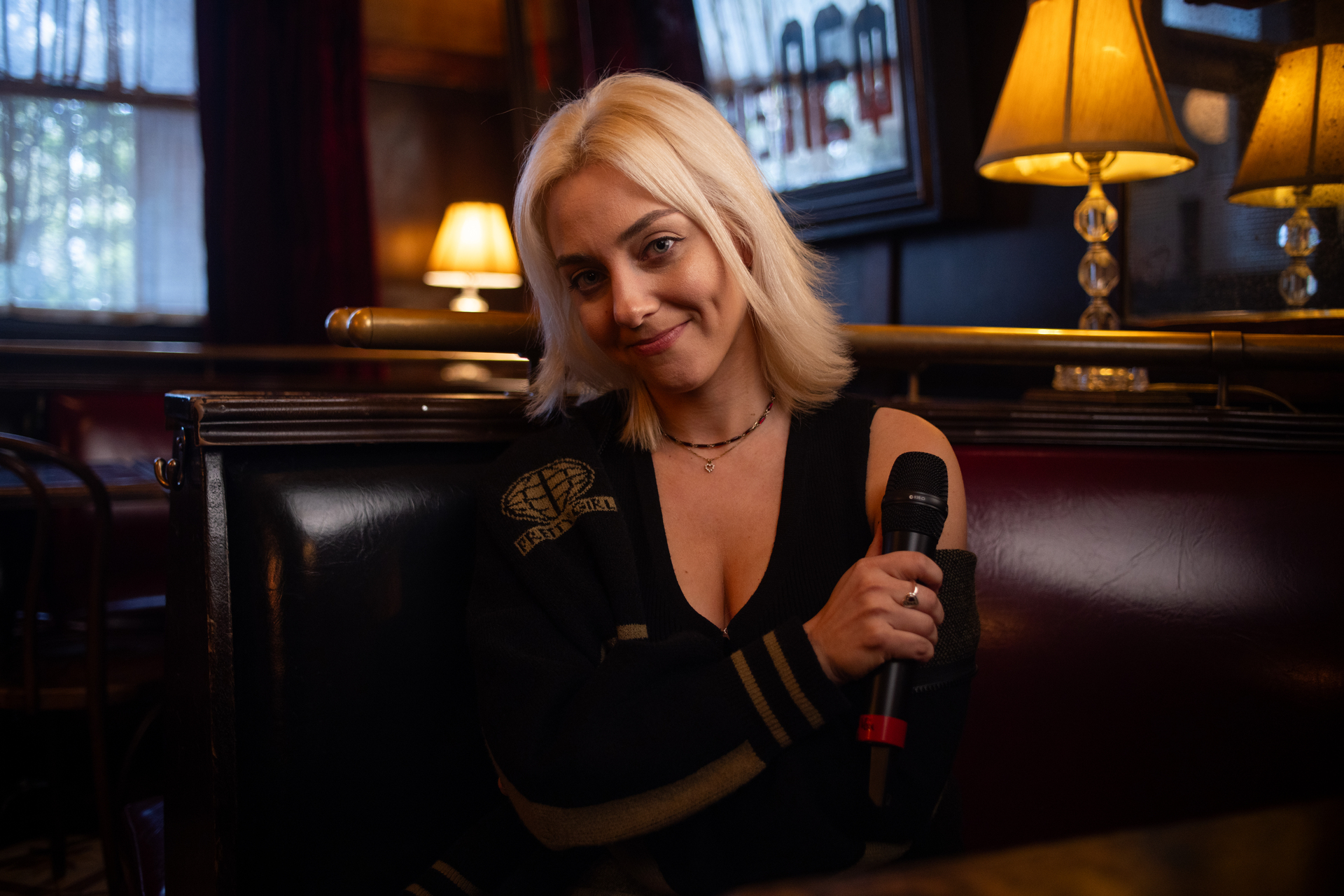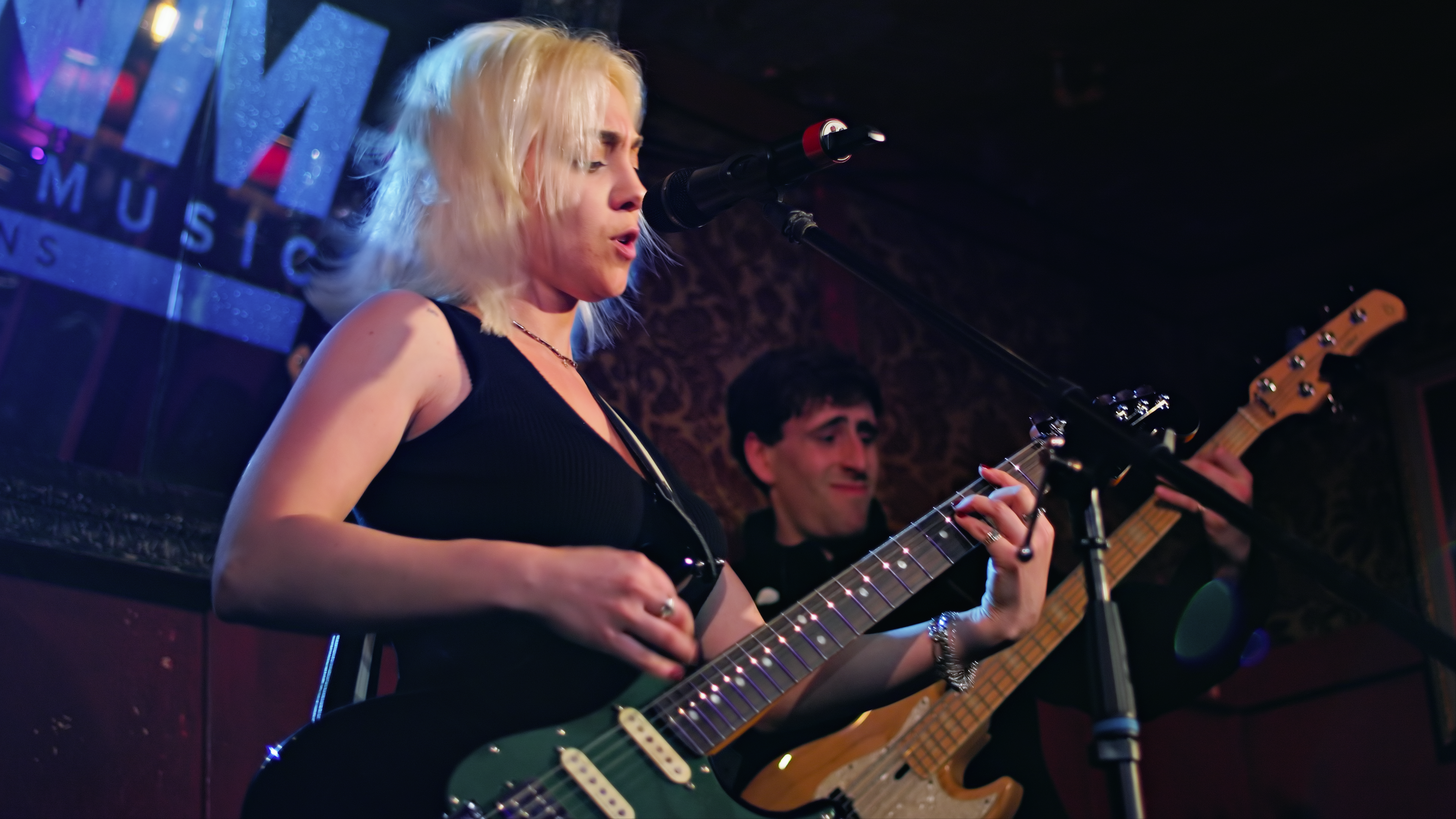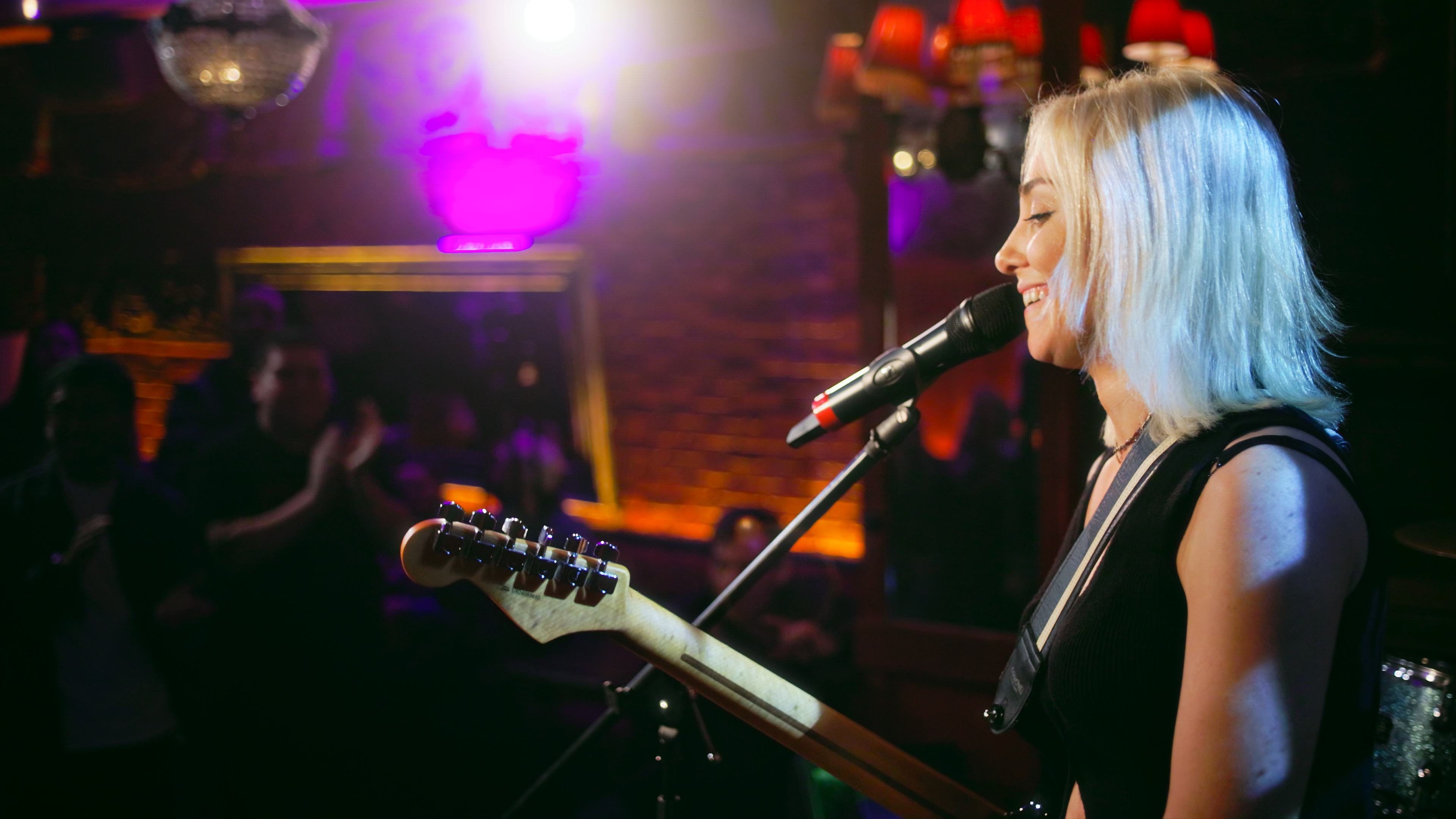Destiny Petrel, an LA-based independent artist, producer and multi-instrumentalist, is the definition of a modern musician. Rooted in a rich musical upbringing and fueled by a passion for authentic connection, her journey from a gospel church band in New York to headlining her own shows in Los Angeles showcases the relentless drive, versatility and impressive creativity needed to succeed in today’s industry.
Petrel’s self-produced music blends raw, live energy with purposeful production and refined pop-rock sensibilities. With her trusted Sennheiser EW-D wireless system ready to go, Destiny consistently showcases her talent on stage with live performances that resonate with her fans.
In this exclusive interview, Destiny shares insights into her creative process, her love for playing live and the role her gear plays in creating her personal sound.
How did your musical journey begin?
I started very young. It was definitely something that was instilled in me and my family because my parents and my two older sisters grew up in such a musical home. We came from a church background, and we grew up playing gospel. My dad traveled a lot, and so we traveled as a family, playing different churches.
Piano lessons were a thing in our family. I did not want to take piano at all. I really wanted to play guitar. There was an acoustic guitar in the corner of the house that was dusty and old. I picked it up and bought so many books, chords, and the whole thing. And from there, it was guitar for me. My sisters and I actually started our own band.
Your band with your sisters had quite a bit of success. What was that experience like?
It was crazy. We started out playing amphitheaters. We were considered the female Jonas Brothers by the management team that picked us up. It was very much the Hollywood Records and Disney route. I was only 15 on that tour, and it was a big tour. It was wild to experience that level of performance with my sisters, learning how to complement each other's strengths on stage. We played together about six years.
After that, you began touring with other artists as a guitarist. That's very different from being the star.
My sisters and I, at the time, had enough because it was a very stressful time. It was very fast, and then it was just a lot of moving around, with different managers and touring. Everything just kind of came to a head.
About two weeks later, my friend called me. He said, "Have you ever played for another artist? Because I feel this gig would be the perfect gig for you." I played a few gigs around LA with him, and then friends started catching on. I started getting asked to play for more artists. It was wild. I was locked in for a good six years touring for other people.
I was so happy because I was able to actually play and be on the road with someone for three months and then be with this other artist for a 6-month run. It was folk artists to R&B, and then pop, which I love so much. I was so happy doing it, but what ended up happening was burnout. That just happens naturally.
Is that when you began producing?
I started heavily producing five years ago. COVID definitely slowed me down in a good way. That's when I really started focusing on my own music and spending more time in sessions. It was so much live music for a decade, at least. Now, I was writing and producing.
As a predominantly live musician, how did you develop your production skills?
Being around producers and asking a lot of questions really helped. My friend Brian, who's a great producer and composer, sat with me. He said, "What do you mean you've been making your own music? You've been producing?" I said, "Dude, I just have GarageBand." He's "Oh my gosh, you're going to get Logic!" I downloaded Logic that night. It opened up so many more abilities that I didn't know about.
I also engineered for a little bit for a producer for No Doubt, where I learned so much about mixing. That was in Pro Tools.
How do you stay creative while handling your own production details?
The writing process is my favorite part because I'm able to really just create without thinking about the detail part. I think it's important to note that they're just details. And that’s okay. Everyone thinks details are so important, but when you’re writing, they're really not. I feel like knowing what you want to say first is most important. So, I leave details for the last step.
Your music utilizes a lot of organic and programmed elements. What's your songwriting approach?
When I'm starting a song, it'll either be starting with the beat or a guitar melody that I have in mind. And then, sometimes, I have lyrics already written and the melody will come into mind. Then, I already have the track in my head.
A lot of people think of concepts before and I feel like it's like a blockage. If you're thinking about what you want to talk about, you end up like, "Is this angry enough?" You know? I just rather do what feels good and make the music.
Even in a day where many artists live on YouTube and streaming, live performances are a big part of your career. Why are your shows so important to you?
There are little acoustic gigs through Zoom, Instagram Live, TikTok Live, and stuff, and it's just not the same. My friend had a show through VR, and I was like, "Alec, it was so freaking weird. I'm looking at you, and you're like, freaking 80 feet tall in front of me." It was so awkward. It's like, "How are we connecting?" It's so disconnecting.
So I love live shows. I still think playing live is the most important part. That's the way to connect people like no other way. There's nothing that will ever replace it and the feeling of being part of it. I played about seven shows in LA last month and it was the most fun I've ever had.
You get a lot of different guitar sounds throughout your music. Do you use plugins or are you a gear junkie?
I'm a gear junkie, for sure. There's so many pedals in my freaking room. And I'm always asking to borrow my friends' gear. Like, my friend has a tiny little pedal that sounds like the tube screamer (
olinthus Cicada).
The
Chroma Console pedal is by far one of my favorite pedals for guitar. I swear by it. I use it on every song because I have my synth going through it, too. The
MXR Blue Box octave pedal, too. I end up using it with a bass instead of a guitar. It's such a sick pedal, depending on what you're putting before and after. And probably eight years ago, I picked up the Echo Park delay pedal because of The Edge.
It's all going through my Fender '65 (reissue). I just like mic it and that's it.
And you stick with Sennheiser for your wireless equipment, right?
Yeah. I've been using Sennheiser my whole life. The last Sennheiser guitar wireless guitar pack that I use, the EW100 G2, I've had for 15 years straight. You were super kind and hooked me up with the EW-D wireless system. The mic was perfect. It sounds great. It was super easy for the front-of-house guy to tweak, too. That's so important because finding the right frequencies in LA is usually a bitch. And the pairing process was so simple and fast.
You, like a lot of modern artists, embrace an independent business model. Why?
I think, after working with so many artists, you learn a lot from being around their teams. A lot of the time, independent artists function way better than someone who's signed to a major label. It gives back the control to the artist, which I think is super important.
You also are saving so much money, and there is no overhead. It's more about building your own team. Finding the people that you really do trust, because that gives you the ability to actually create.
What's next for Destiny Petrel? Where do you see your career moving into the future?
Who knows with AI, right? Who knows where the music industry is going to go for artists, producers, songwriters, and especially those who make a living off sync work? We’re all in for a big change.
All I could say is I really hope that I'm still making music, which I believe that I will be, and definitely still be playing live. I really want to sell out my tour. That's the dream that I have. I would be the happiest person alive.
But also, I think the biggest dream is playing with Lenny Kravitz. That's what I want to achieve in my next five years.




